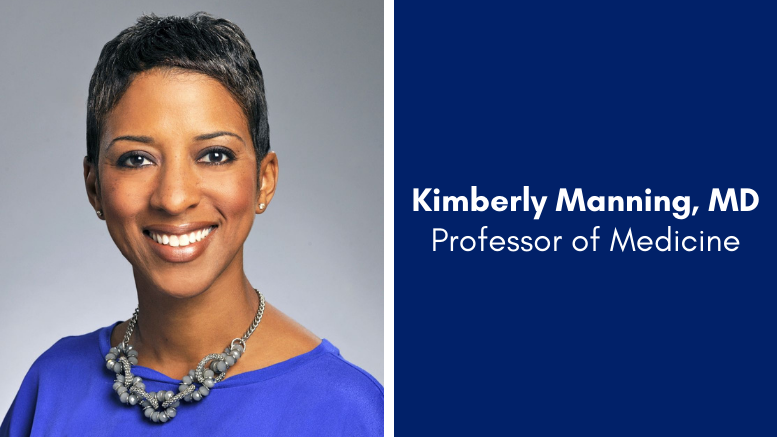Kimberly Manning, MD, professor in the Division of General Medicine, recently wrote a piece titled, “More than medical mistrust,” in The Lancet.
In her candid reflection, Manning explores the trust issues of African Americans in regard to the U.S. health care system. Read an excerpt below and click here to read the full article.
I turned off the ignition and sat still. Up until that moment, I’d been excited about this day. But now that it was here, I felt this strange mixture of angst and ambivalence. A sudden urge welled up in me to grab my phone, call the centre, and cancel. I told myself, “You don’t have to do this.” I reassured myself, “I know.”
I stepped out of the parking garage and made my way towards the building. Once I reached the ramp leading to the entrance, I froze. My feet felt glued to the asphalt and a few tears slid down my cheeks. Why was I crying? I pressed the heels of my palms into my eyes and took a big drag of air. It was exactly 2 minutes past the start time of my appointment. I told myself, “You really don’t have to do this.” I reassured myself, “I know.”
My phone buzzed and startled me. It was the vaccine trial coordinator reaching out to see if I would still be coming. I paused before answering. “Yes. I’m walking in now.” They were pleasant when I stepped inside. Even behind the mask, I could see from the twinkle in their eyes that they were smiling. They took my temperature, asked a few questions about my health status, and then escorted me to an elevator that, for safety reasons, I’d ride up alone. My inner voice began speaking again. “You can still leave, you know.” And I told myself, “I know.”
My hands were wringing in my lap. The coordinator sat directly across from me with a clipboard and began the process of informed consent. I felt my pulse quickening. Each breath I took behind my mask pushed plumes of condensation onto my glasses. I removed them, wiped them off, and pinched the nose on my face cover before placing them back on my face. The coordinator asked, “Is everything okay?” “Yes”, I replied. “I just need to be able to see.” They nodded and continued the process. With every statement on that long list, I listened intently. I asked them to repeat or reword the parts that weren’t clear to me or that I perceived as unnecessarily complex. My responses were slow and measured. Then, after the final question, they handed me a stack of papers with stickies on the areas for me to sign, telling me to ask if I had more questions.
That’s when it happened. Without warning, a cacophony of sounds clattered inside of my head. Throaty voices cried out in protest. There was the tinkling of metal instruments punctuated by shrieks of pain and conciliatory murmurs. Then came scuffling sounds along with the clink of handcuffs. Someone wept in rhythmic tics and then, just for a few moments, there was silence. Next, there was the sound of a brass band playing. Then came the laughter. Soft at first, but quickly becoming louder, blended with applause and sounds of celebration. I closed my eyes and took in a deep breath, hoping I could drown it all out. I could not.


Be the first to comment on "Kimberly Manning, MD authors piece in The Lancet"